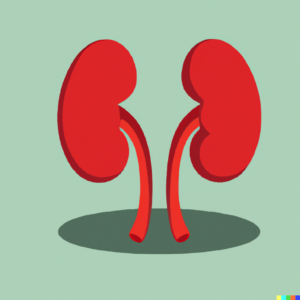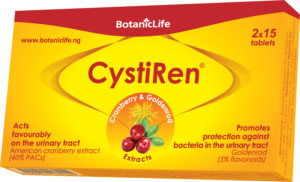⏰ Last Update: 14.08.2024
Kidneys are among the most crucial organs in our body, performing a plethora of important functions that maintain our overall health. These bean-shaped organs, each about the size of a human fist, are located near the middle of the back, just below the rib cage. Each day, our kidneys filter around 200 quarts of blood to sift out about 2 quarts of waste products and extra water, which become urine. This article aims to provide an overview of the kidneys, their essential functions, common diseases, and steps for keeping them healthy.

Function
Waste Excretion
Kidneys remove a variety of wastes from the body, which are byproducts of metabolic functions. These wastes include urea and uric acid, produced from the breakdown of proteins and nucleic acids, respectively.
Fluid Balance
Kidneys regulate the body’s fluid balance by adjusting the volume of water that is lost in urine. They also maintain the balance of electrolytes, such as sodium, potassium, and phosphate.
Acid-Base Homeostasis
They maintain the body’s pH balance (acid-base balance) by regulating the loss of hydrogen ions and bicarbonate ions in urine.
Blood Pressure Regulation
By controlling the volume of blood and the amount of electrolytes in the body, kidneys help regulate blood pressure.
Learn everything you need to know about blood pressure: https://botaniclife.ng/blog/high-blood-pressure/
Red Blood Cell Regulation
The kidneys release a hormone called erythropoietin, which stimulates the bone marrow to produce red blood cells in response to low oxygen levels in the blood.
Detoxification
They help detoxify the body by filtering out toxins from the bloodstream and excreting them in urine.
Common Kidney Diseases
Kidney Stones
Kidney stones, medically referred to as nephrolithiasis, are hard, crystalline deposits formed within the kidneys or urinary tract. These deposits are formed from substances that the body typically excretes in urine. However, when these substances become highly concentrated, they can crystallize, aggregating into stones of varying sizes.
Kidney Infection (Pyelonephritis)
Pyelonephritis, more commonly known as a kidney infection, is a specific type of urinary tract infection (UTI) that typically originates in the lower urinary tract—specifically the urethra or bladder—and ascends into the kidneys. It’s a serious condition that requires prompt medical attention as it can cause permanent kidney damage or even become life-threatening if the infection spreads into the bloodstream.
CystiRen is a high quality natural product, which helps promote urinary tract health. Preventing UTIs helps precent kidney infection. Learn more about CystiRen on the following link: https://botaniclife.ng/product/cystiren/
Chronic Kidney Disease (CKD)
Chronic Kidney Disease (CKD), also known as chronic renal disease, is a progressive condition characterized by a gradual loss of kidney function over time. In healthy kidneys, complex processes occur to filter out waste products, excess water, and impurities from the blood. These waste products are then excreted from the body in the form of urine. However, in CKD, the kidneys’ ability to perform this vital filtering function diminishes, leading to the build-up of waste products and fluids in the body.
Kidney Failure (End-Stage Renal Disease)
Kidney Failure, also known as End-Stage Renal Disease (ESRD), is a severe and life-threatening condition that signifies the final stage of Chronic Kidney Disease (CKD). In this state, the kidneys have lost almost all their functionality, reducing their ability to perform vital roles such as filtering out waste products, balancing electrolytes, and producing hormones to regulate blood pressure and promote red blood cell production.
Preventing Kidney Disease
Maintaining kidney health is crucial for our overall well-being. Several measures can be taken to ensure the longevity of our kidneys:
Staying Hydrated
Hydration plays a pivotal role in kidney health. Consuming an ample amount of water helps the kidneys efficiently clear sodium, urea, and other toxins from the body, promoting renal health and function.
Balanced Diet
Adhering to a diet that is rich in fruits, vegetables, and lean protein sources can play a critical role in preventing kidney disease. This nutrient-rich food profile helps regulate body functions that can impact the kidneys, including blood pressure and blood sugar.
Regular Exercise
Engaging in regular physical activity is another vital aspect of kidney health. Exercise can help maintain optimal blood pressure levels, which, in turn, supports the functioning of the kidneys. A mix of cardio and strength training exercises can help achieve this balance.
Avoid Overusing Over-the-Counter Medications
While over-the-counter drugs like ibuprofen can be beneficial for treating temporary pain or discomfort, habitual usage can potentially cause harm to the kidneys. It’s important to use these medications sparingly and always follow the recommended dosage.
Regular Check-ups
Regular health screenings and check-ups are a proactive way to maintain kidney health. They can help detect any potential kidney issues in their early stages, allowing for prompt and effective treatment. By regularly monitoring your health, you can better ensure the longevity of your kidneys and your overall well-being.
Conclusion
The kidneys are vital for maintaining our body’s internal equilibrium of water and minerals, removing waste products, regulating blood pressure, and performing several other essential tasks. Ensuring their health is critical to our overall well-being. We can support kidney health by staying well-hydrated, eating a balanced diet, getting regular exercise, avoiding unnecessary medications, and going for regular health check-ups.
Learn more about CystiRen!




